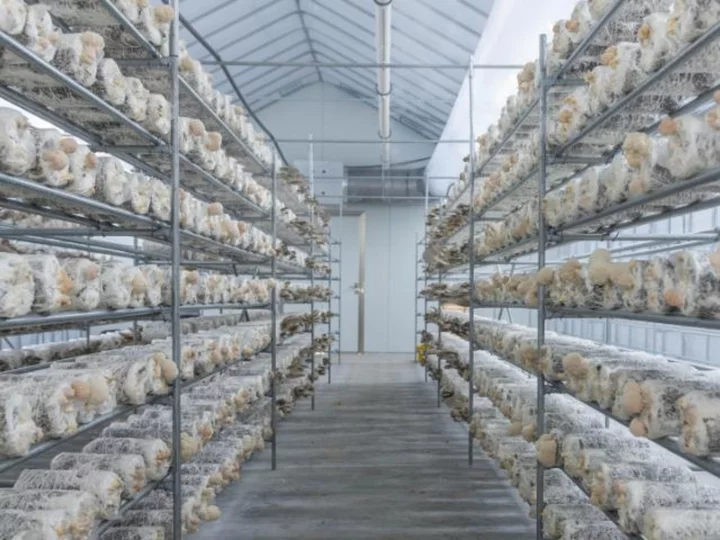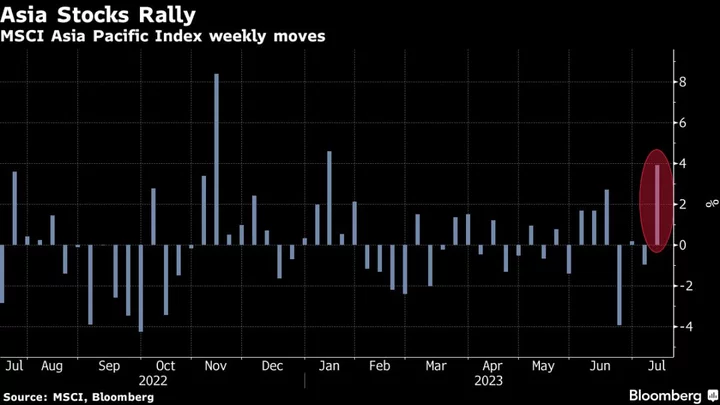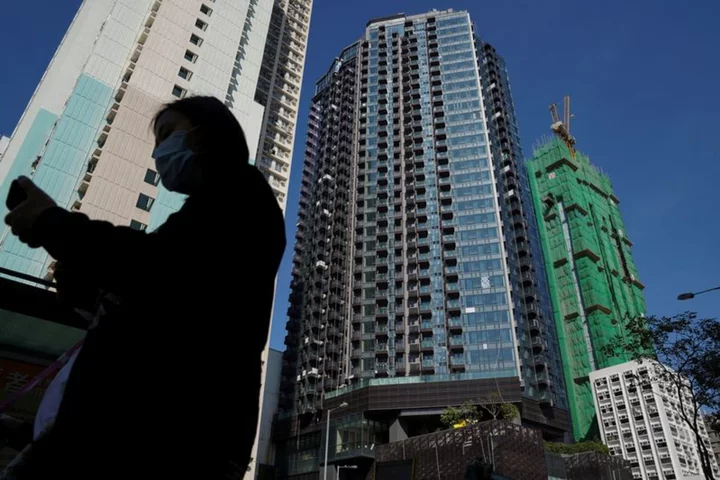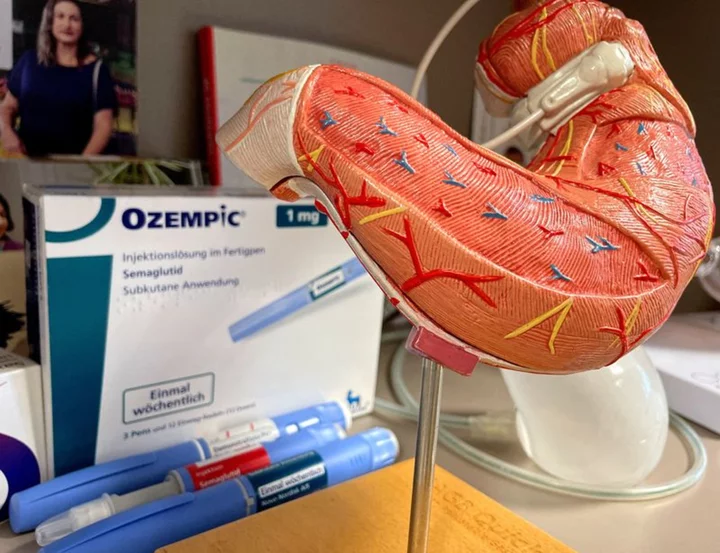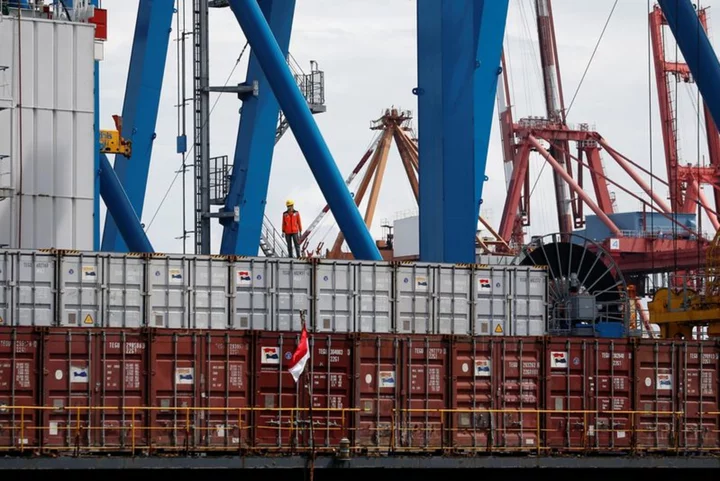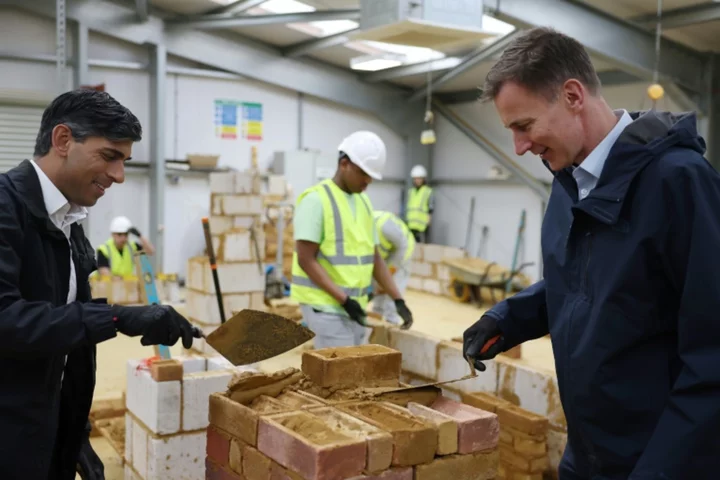Mushrooms usually sprout from dark, damp forest floors or bloom on fallen tree branches. Now, a startup in Abu Dhabi has found a way to grow them in the middle of the desert.
Below Farm is producing "specialty mushrooms" such as oyster, king oyster, shiitake and lion's mane.
Managing director Bronte Weir says the indoor farm, about 45 minutes' drive from downtown Abu Dhabi, is the first in the region to grow and sell high-end mushrooms.
Below Farm's offerings are better than imported mushrooms, she says, because "mushrooms damage very easily and lose their freshness quickly."
Weir co-founded the company in 2021 in partnership with Polish couple Liliana Slowinska, a business development specialist, and Wojciech Slowinski, an electrical engineer.
Describing themselves as "agents of change in the fungi revolution," the trio sell to restaurants, stores and direct to consumers. The company's product list includes boxes of mushrooms, grow-your-own kits and mushroom powders, which give an umami boost to soups and sauces, and can be sprinkled onto dishes as seasoning.
Below Farm produces around one ton of fungi a month, says Weir, and is looking to expand to meet rising demand.
Growing mushrooms in extreme heat
Weir says that existing indoor mushroom-growing technology, developed mainly in Europe and the United States, isn't designed for Abu Dhabi's scorching daytime temperatures, which can top 40 degrees Celsius (104 degrees Fahrenheit) in summer.
Wojciech Slowinski took the lead on developing a solution, Weir tells CNN Business. The farm consists of four specially adapted, pressurized chambers covered in a foot-deep layer of insulation to help keep the interiors cool.
"We can control light, temp, humidity and atmosphere to create optimal conditions for each type of mushroom," says Weir.
Maintaining higher air pressure inside the chambers helps to protect the crops from Abu Dhabi's strong winds and swirling dust because when the doors are opened, air blows out rather than in, she says.
Below Farm's goals are aligned with those of the UAE government. The country imports 85% of the food it consumes but has ambitions to bolster food security by increasing domestic production.
Weir says sustainability is also a key goal. The mushrooms are grown on special blocks made mainly from upcycled waste date palms. Dates make up 61% of plant crop production in Abu Dhabi and dead palms are either burnt or left in piles that dot the landscape. "So far, we've used 350 tons of palm leaves," says Weir. "It's an achievement that we're really proud of."
Phenomenal fungi
Raj Dagstani, who runs neighborhood pizza and focaccia restaurant Marmellata, is a fan.
"The best-tasting pizza on the menu is the kale and mushroom," says Dagstani, adding that he created the dish after he sampled Below Farm's mushrooms. He now orders 20 kilograms (44 pounds) of oyster mushrooms a week from the company.
According to market intelligence experts, The Business Research Company, the global mushroom market grew by over 9% to $62.4 billion last year, and continues to expand, partly due to the soaring popularity of plant-based and vegan diets.
Below Farm hopes to ride this trend. So far, "the business has been bootstrapped" by its founders, "with a small amount of angel investment along the way," says Weir. Now, with the current farm as proof of concept, the company's founders are gearing up for a fundraising round later this year with a view to setting up a second, larger-scale farm and doubling production.
Weir would also like to go greener. Electricity to power the air conditioning in the mushroom chambers is the company's largest resource demand, she says, so Slowinski is investigating how to use spent growing blocks as a biofuel to help power the farm.
Ultimately, "we want to make the Middle East a center of excellence for mushroom cultivation," she says.

